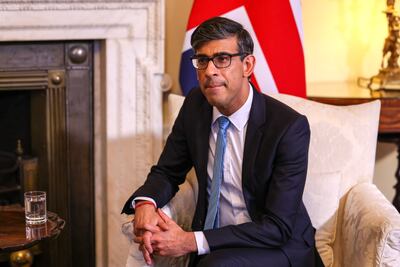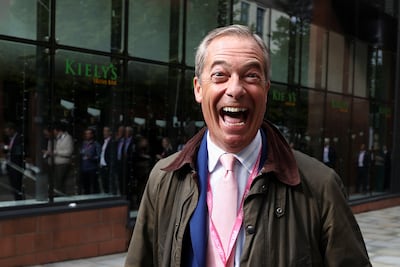British politics is a tale of two leaders, Prime Minister Rishi Sunak and opposition leader Keir Starmer. Or perhaps three leaders, although the third is the joker in the pack and we can leave him until later.
Mr Starmer is guiding the Labour party to what he hopes will be a historic victory in the general election predicted for the end of 2024. Things are (mostly) looking good for Labour. They are significantly ahead in opinion polls, and if you trust those polls, so far ahead of the real election then Labour maybe on course for a landslide.
Two recent by-election victories in supposedly “safe” Conservative seats have increased optimism in the party, despite a row about a Labour candidate making unfortunate remarks about Israel. It led Mr Starmer to abandon that candidate, although his response was criticised as being too slow.
Mr Starmer, therefore, remains cautious about the supposed “inevitability” of becoming prime minister. His team remembers the bitter moment in 1992 when Labour was overconfident of winning power after 13 years of the Conservatives in government – and blew it. It took the party another five years to enter government under Tony Blair.
The lesson now drummed into Labour campaigners is that high expectations and positive polling can lead to overconfidence and taking the electorate for granted. Mr Starmer reminds his troops that the only poll that matters has not happened yet. This “safety first” approach means that Mr Starmer points out mistakes and divisions within the Conservative party while being cautious – some claim unambitious – about what Labour would actually do in power.

Yet Mr Starmer’s problems are relatively minor compared to the tale of woe that is the Conservative party. Or parties. As we have noted on these pages before, one backbench MP talks of the Conservative party as “five families”, leading to comparisons with the rivalries between the clans of the New York mafia rather than the unity of a democratically elected government.
Mr Sunak, by all accounts, appears intelligent and decent. But he also happens to be a multi-millionaire married into one of the world’s richest families and he often awkwardly fails to connect with the British public. He is not much liked, according to pollsters, even by his own party supporters. On the plus side, Mr Sunak at least does not have a track record of lying and scandals like Boris Johnson. Nor did he pursue the blinkered and disastrous politics of his immediate predecessor Liz Truss.
Nevertheless, some of Mr Sunak’s appointments are far from successful. Chief Secretary to the Treasury Laura Trott, for example, was exposed on a BBC Radio interview as someone with – to be polite – a limited grasp of economics. In Mr Sunak’s defence, it could be said that the problem in the government in 2024 is not the leader of the Conservative party. It’s the Conservative party itself.
Those “five families” are constantly fighting a series of battles to find the next leader when – and most of them appear to think it really is “when” and not “if” – they perform catastrophically in the general election and lose power for many years. Numerous Conservative MPs – at the latest count more than 50 – smell defeat and have decided that they will not stand again in the next election. Others are jockeying to run as Mr Sunak’s successor or at least plotting to join the winning faction within the party after the election is – as they seem to believe – lost.
And that brings us to the joker in the pack, Nigel Farage. He will go down as a historical figure in bringing Brexit to Britain, even if he seems to accept that the project as implemented has been a disappointment. Others call Brexit a failure and a self-inflicted disaster.

Mr Farage has also been a key player in more political parties than usually seems healthy for someone who seeks power. He was the leader of the UK Independence Party, then the Brexit Party, and is now part of something called Reform, which acts as an irritant or gadfly on the Conservative political right.
Mr Farage says Labour will win the next election and claims Conservative members would vote for Mr Farage himself as leader of the party if they could dump Mr Sunak. Perhaps. Since Mr Farage is not (as far as we know) a Conservative party member, that would be remarkable.
Mr Sunak’s dilemma, therefore, is whether to move the party further to the right, to try to mop up the Farage-Reform vote and see off that threat, or move the party to the political centre, which is – of course – where most of the votes are, but also where Labour holds much more of the ground. Mr Sunak appears to be wobbling between these two difficult choices.
The sad thing for all of us is that at a time when the UK demands leadership, when so many things in public life and society are broken, the Prime Minister appears to be twisting in the prevailing winds. You may feel sorry for Mr Sunak. I am far more sorry for the rest of us, as we are forced to witness the dying embers of a government without a spark of life.


